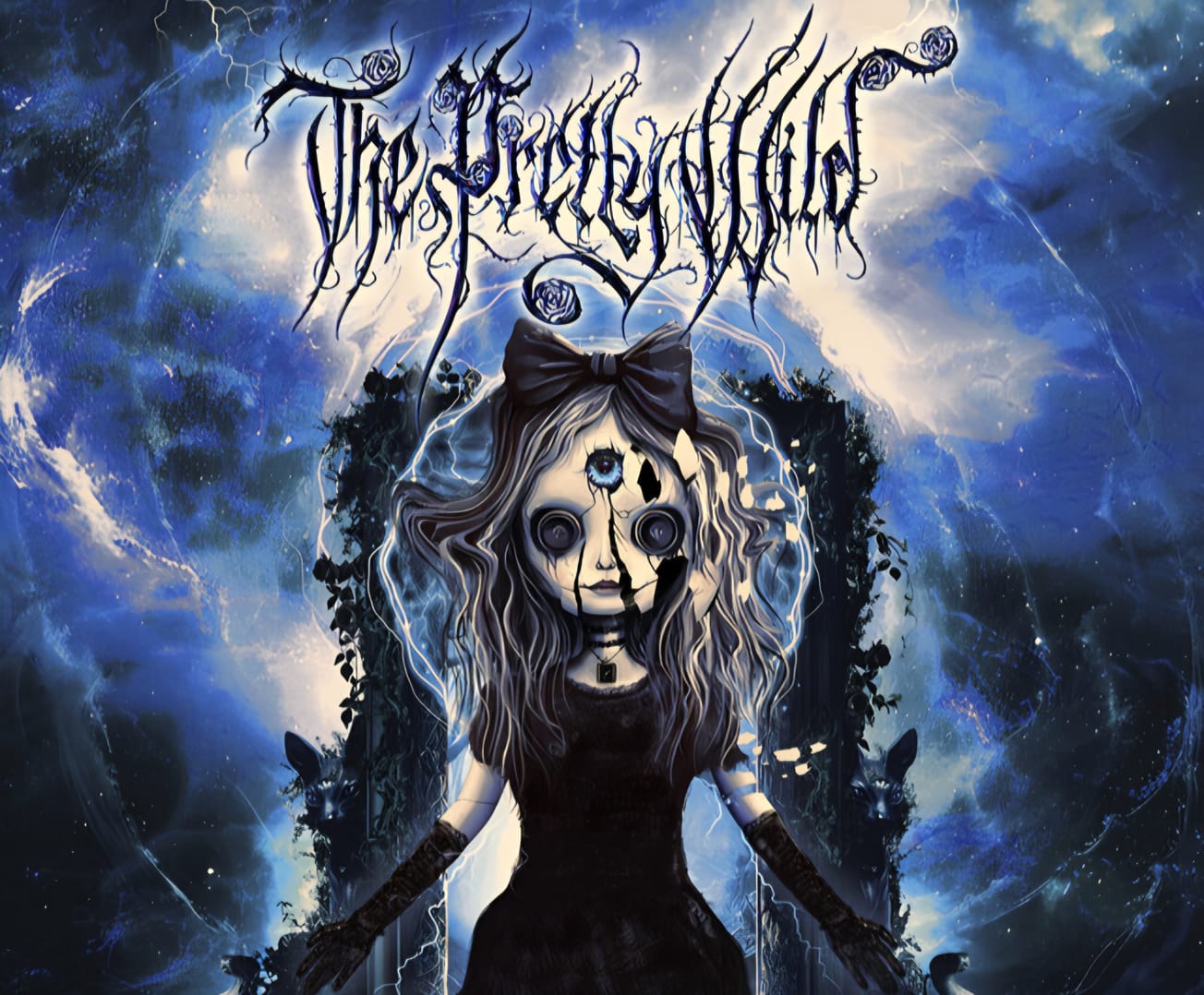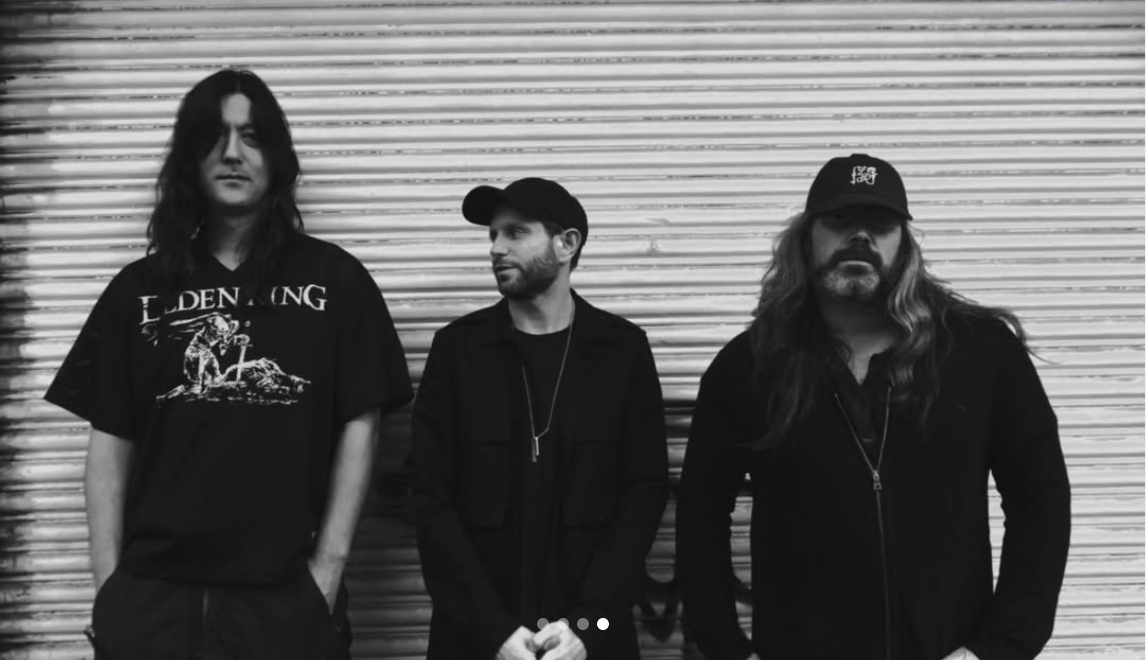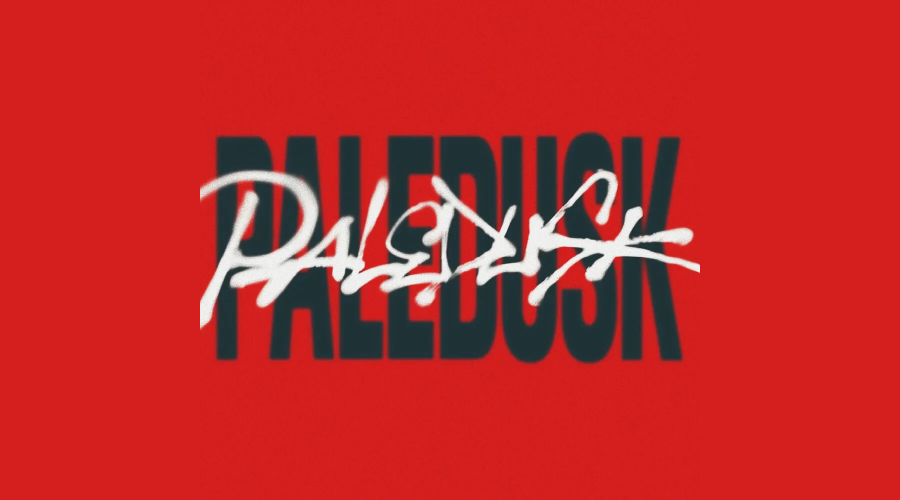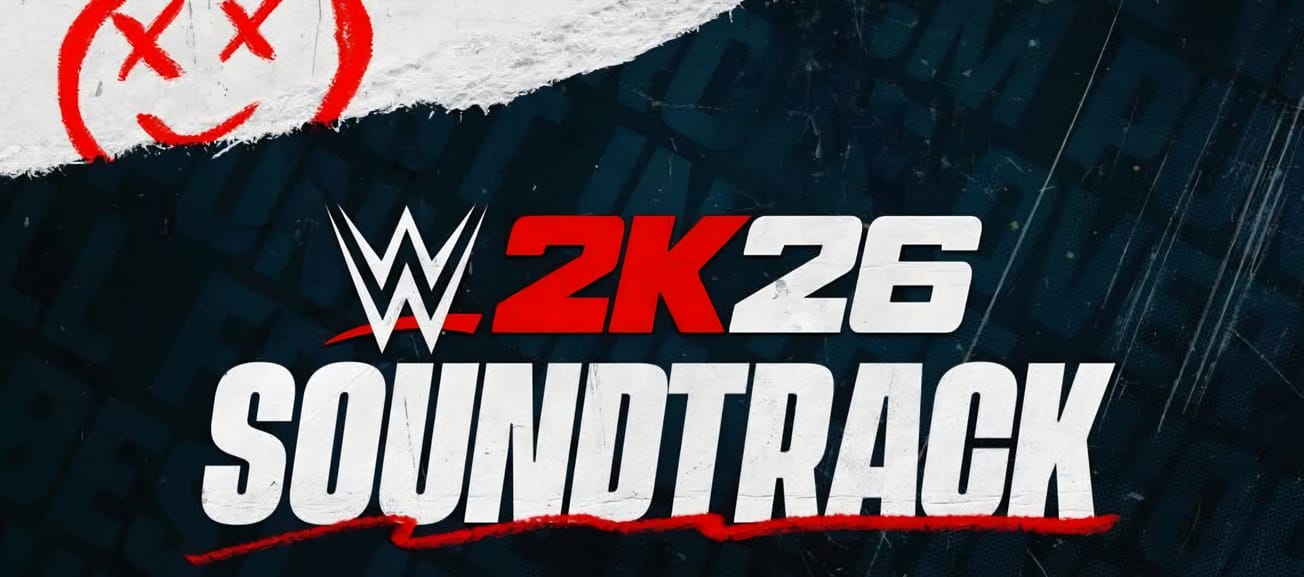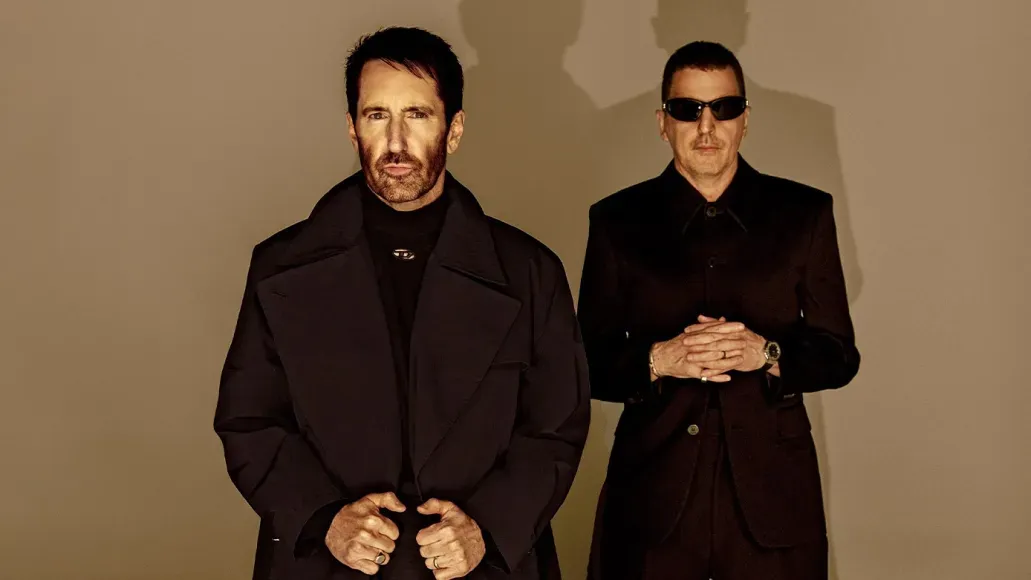When speaking to Corey Swope, the artist behind the cybergrind act ZOMBIESHARK!, it was immediately apparent that there was a deep sense that his album was finished and almost out.. “At its core, Die Laughing is about failure and the reflection of the factors that create it. Whether it be causality of the atmospheres of your upbringing or the connections with people you make that end up hurting you. The humor of spending your whole life thinking you're doing the right thing and realizing there is no escape from your pitfalls, Swope exclaims. He continues with “On this album, I was letting intrusive thoughts win in the worst way I knew how.”
First coming into the scene in 2010, Swope quickly made a name for himself with the self-released Monsters EP and In the Court of the Shark King, before partnering with the former cybergrind and Nintendocore label Lotty on Fire Records to release A Sinking Ship.
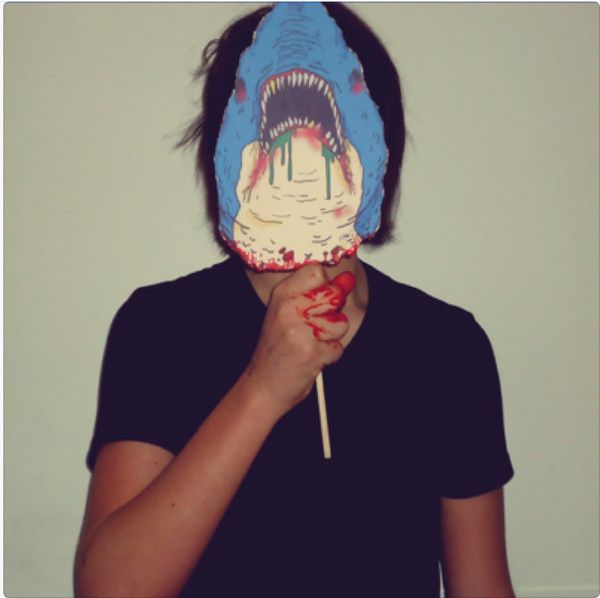
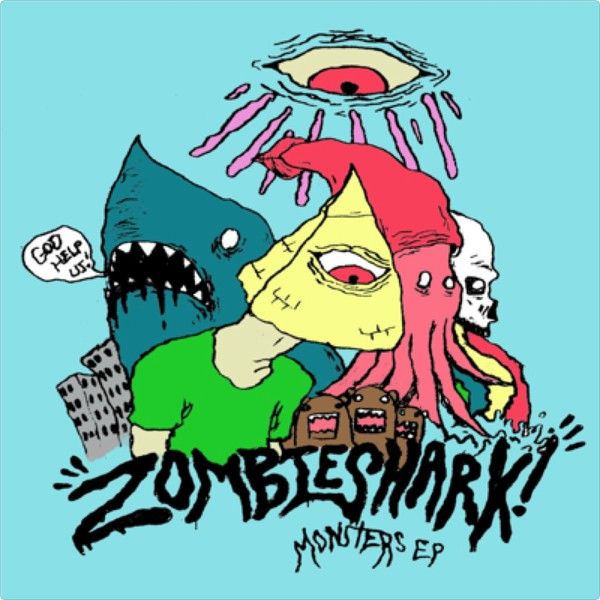
Various splits, singles and EP’s would be churned out, all building upon each other and showing the growth of the project in their maturity as each release would see a tighter mastery on production, lyricism and structure. The eventual culmination of that decade of hard work lead to what many still consider the best cybergrind record of all time.
I Will Destroy You, Myself, and Everything I’ve Ever Loved was a cataclysmic event in the scene, with the album being credited as being one of big four scene revival albums alongside Thotcrime’s Ønyøurcømputer, Blind Equation’s Life is Pain and the Big Money Cybergrind vol. 1 compilation. One only needs to listen to it once through to see why; its seamless meshing of cybergrind, industrial, nintendocore and metalcore is not only heavy as hell and emotionally charged, but in what was at one point a rare form for a cybergrind album, extremely catchy and tightly produced. Following up with the Silent Hill inspired Born From A Wish EP and playing a bevy of shows with bands like Soulkeeper, Bejalvin and even HEALTH, Corey once again began digging his toes into the dirt to find the inner turmoil that would soon manifest as the subject of todays review, Die Laughing.

With help from Theoria Records, ZOMBISHARK! was able to persevere with struggle and finish his work on this tumultuous period in life and music. “I can not thank (Theoria Records) enough for being the only label to really give me a chance. I reached out to so many places, all (turning me down). They really have helped me develop as an artist and have really helped me grow my audience in ways I absolutely couldn’t do on my own. I am very grateful for them,” Corey declared. Indeed, leading up to the release, with singles like “Heads I Win, Tails You Lose, You Are My Sunshine” and “Put Your Glasses On, Nothing Can Be Wrong,” the hype train was moving full steam ahead, blaring its terrifying horn as each track forced onlookers to pay attention. There was a small worry that this album wouldn’t live up to expectations; instead, it ended up exceeding every single one.
Every individual track stands on its own merit as an accomplishment; however, together, they’re an undeniable monolith. Even “The Fool,” a short, industrial-sounding intro, is by itself a menacing, if not short, dark ambient noise track, but leading into “Party All the Time,” it serves its purpose as a warning.
Speaking of “Party All the Time,” the song lurches forward with a glitchy intro before pummeling you in the face with a devastating barrage of blast beats, explosive synths and ungodly growls. There is an ever-present darkness looming over the atmosphere of every song on this album, and this sets that tone from the start.
“Bastard Spelled Backwards” begins with manic blasts of drums and distorted synths, echoing skramz acts like The Number 12 Looks Like You or Orchid while fully committing to the synthetic and mechanical nature of the tracks, with a high scream that, according to Swope, “completely shredded (his) throat.”
One thing to note about this album is that every song feels as if Corey is struggling for his life, fighting against demons both figuratively and literally. The album “stands out as a time capsule of me at my bleakest,” Corey recalled. One can tell simply by the emotional labor each vocal performance conveys, with lines like “Every way I’m losing/ every way life fails me/ fuck, I’m bursting at the seams” in “Heads I Win, Tails You Lose, You Are My Sunshine.” Even when the screaming stops, it feels like anxiety taking over with the hurried way he says “it goes on and on…” midway through, cementing the tone for the rest of the album.
“RGB Gaming Guillotine” features a lot more clean singing than many of the other tracks thus far, but don’t let that description trick you into thinking it’s in any way softer. Leaning into Nintendocore influences heavily, it mixes chiptune elements with heavily distorted and chopped-up synths, leading smoothly into the next track, “Loxosceles on the Isosceles,” which introduces more arpeggiated pads into the mix while still maintaining the kinetic drum programming and devastatingly face-melting performance, all while being supported by metalcore maniacs Soulkeeper.
As the short interlude “Mosquito in the Embroidery Room” gives us an eerie yet serene reprieve, it’s short lived as we are pulled right back into the tempest with “Procedurally Generated Bear Trap.” Incorporating a crunchy EBM styled bass, crispy drums that add a heavy dash of breakcore in their implementation and almost sasscore vocalizations, it fits so perfectly within the maelstrom that has thus far engulfed us.
After another creepy music box-style interlude comes and goes with “Problem Child”, we get the track that Corey admitted had almost fifty iterations before the final touch of Angel Marcloid’s (fire-toolz) production added the final polish. “Online Garden of Eden HD” experiments with more noise-inspired elements, taking on a metallic, almost corrupted vaporwave vibe while still somehow maintaining the high levels of aggression that have been on display so far.
Hallucinogenic Bulb’s contribution on “Home Before Sunset” lends itself to a very somber, ambient noise track, which serves as another interlude. On any other album, it would feel repetitive and pretentious, yet with how this release is structured overall, every track, even ones that in a lesser project could be considered overwrought, lends itself to the larger theme of self-loathing; for example, the final seconds of the songs apologetic voicemail sample lend itself into the morose atmosphere of the following track, “Put Your Glasses On, Nothing Can Be Wrong.” Unlike the previous songs on the album, this is essentially all clean singing, washed in heavy effects that build upon the almost inhuman nature of the album; even still, through the layers of effects, you can hear the anguish in Corey’s voice as he waxes nostalgic for lost connections and for a time when the void wasn’t so overbearing.
“As Beautiful and As Terrible as the Dawn” starts off with an almost Nurse With Wound-style intro before unleashing a torrent of strained singing over instrumental elements that feel as though they are warring with themselves in order to compete for the listeners attention, but in an extremely deliberate way.
With only three songs left, “Does Barcode Man Believe In God?” continues the mathcore instrumentation of earlier tracks like “Heads I Win” or “Party,” replete with parts for moshers to butt heads in a circle pit, breakdowns to crowdkill to, and a whole section to scream your lungs out to; alternatively, “Counting Silos for Miles” brings back the brooding, noisy industrial soundscapes with an apocalyptic screed over clanking percussion and gears grinding, before diving head first into the finale of this whole experience.
If this album has been a melancholy anthem with unrelenting force thus far, “Blue Mountain” is the final movement of the overall piece. Devastating and impactful, this last song is the masters thesis to everything this album has been building to; an explosion of pure adrenaline fueled exploration of loneliness, one so horribly bleak that all anyone can do is laugh.
I’m not going to sugarcoat it; this album is brutal. Not just musically, but emotionally, mentally, and physically. Listening to the whole thing in one sitting is like living through a very depressing nightmare, but is wholly necessary to fully appreciate the journey towards the light that ZOMBIESHARK! took in making Die Laughing. This is an endurance test, but it’s a test you should take. Because once you make it through the first time, you’re going to want to hear this masterfully crafted work of art…on and on and on and on…
Die Laughing is available now through Theoria Records.




